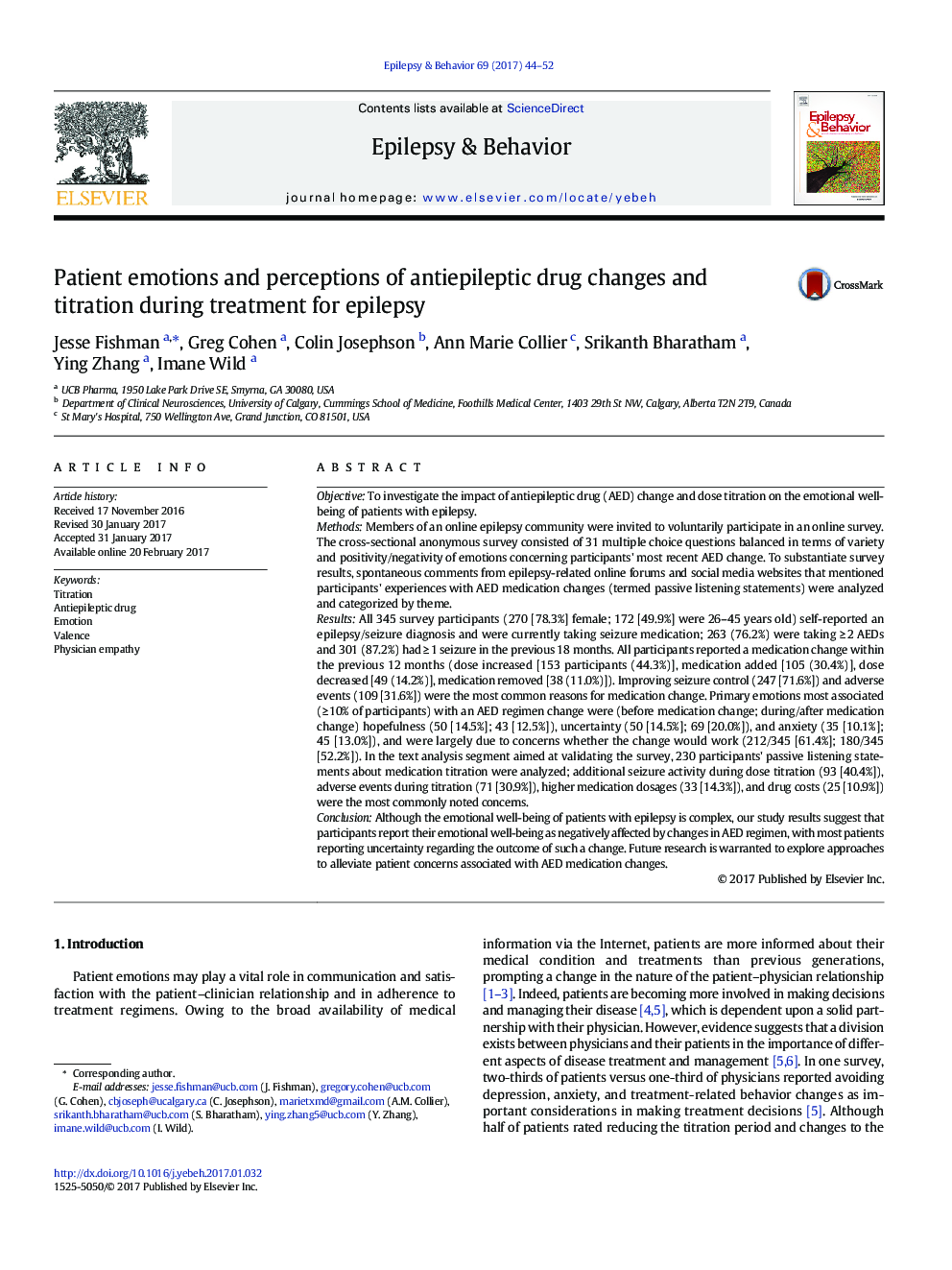| کد مقاله | کد نشریه | سال انتشار | مقاله انگلیسی | نسخه تمام متن |
|---|---|---|---|---|
| 5628399 | 1579823 | 2017 | 9 صفحه PDF | دانلود رایگان |
- Study results suggest that patient emotional well-being is affected by AED changes.
- Emotions were more negative than positive before and during/after an AED change.
- Most patients were unsure if an AED change would improve/worsen their situation.
- Physician empathy, patient engagement, and AED selection may support well-being.
ObjectiveTo investigate the impact of antiepileptic drug (AED) change and dose titration on the emotional well-being of patients with epilepsy.MethodsMembers of an online epilepsy community were invited to voluntarily participate in an online survey. The cross-sectional anonymous survey consisted of 31 multiple choice questions balanced in terms of variety and positivity/negativity of emotions concerning participants' most recent AED change. To substantiate survey results, spontaneous comments from epilepsy-related online forums and social media websites that mentioned participants' experiences with AED medication changes (termed passive listening statements) were analyzed and categorized by theme.ResultsAll 345 survey participants (270 [78.3%] female; 172 [49.9%] were 26-45 years old) self-reported an epilepsy/seizure diagnosis and were currently taking seizure medication; 263 (76.2%) were taking â¥Â 2 AEDs and 301 (87.2%) had â¥Â 1 seizure in the previous 18 months. All participants reported a medication change within the previous 12 months (dose increased [153 participants (44.3%)], medication added [105 (30.4%)], dose decreased [49 (14.2%)], medication removed [38 (11.0%)]). Improving seizure control (247 [71.6%]) and adverse events (109 [31.6%]) were the most common reasons for medication change. Primary emotions most associated (â¥Â 10% of participants) with an AED regimen change were (before medication change; during/after medication change) hopefulness (50 [14.5%]; 43 [12.5%]), uncertainty (50 [14.5%]; 69 [20.0%]), and anxiety (35 [10.1%]; 45 [13.0%]), and were largely due to concerns whether the change would work (212/345 [61.4%]; 180/345 [52.2%]). In the text analysis segment aimed at validating the survey, 230 participants' passive listening statements about medication titration were analyzed; additional seizure activity during dose titration (93 [40.4%]), adverse events during titration (71 [30.9%]), higher medication dosages (33 [14.3%]), and drug costs (25 [10.9%]) were the most commonly noted concerns.ConclusionAlthough the emotional well-being of patients with epilepsy is complex, our study results suggest that participants report their emotional well-being as negatively affected by changes in AED regimen, with most patients reporting uncertainty regarding the outcome of such a change. Future research is warranted to explore approaches to alleviate patient concerns associated with AED medication changes.
Journal: Epilepsy & Behavior - Volume 69, April 2017, Pages 44-52
